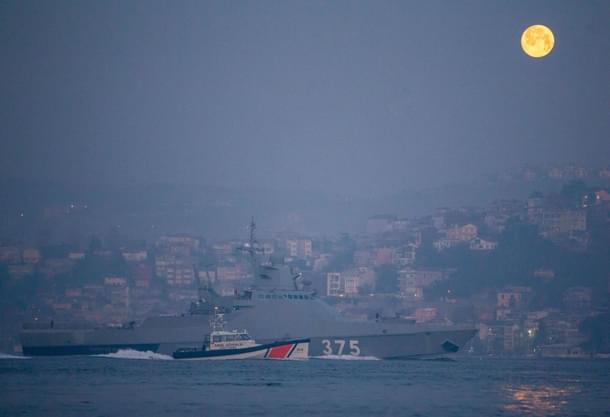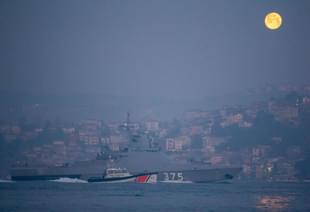World
Russia Withdraws Its Request Of Warships Passing Through Bosphorus Strait As Turkey Enforces Montreux Treaty
Swarajya Staff
Mar 02, 2022, 05:05 PM | Updated 05:05 PM IST
Save & read from anywhere!
Bookmark stories for easy access on any device or the Swarajya app.


Turkey has asked Russia not to send its naval vessels through the Bosphorus strait. After this move of Turkey, Russia withdrew its request to do so. This move of Turkey was confirmed by Turkey's Foreign Minister Mevlut Cavusoglu.
“We, in a friendly way, told Russia not to send the vessels and Russia told us that the vessels would not pass through the straits.” he says.
The Montreux treaty was signed in 1936, named after the palace in Switzerland where it was signed. It gives Turkey the right to oversee access to the Black Sea as it regulates sea vessels passing through the Bosphorus and Dardanelles straits. The original signatories were Japan, the UK, the Soviet Union, Yugoslavia, Romania, Greece, Germany, France, Bulgaria, Australia and Turkey.
The treaty gives Turkey a right to ban warring party vessels from access to the Black Sea unless their home base is there.
The Russian demand which concerned four warships was made on Sunday and Monday, according to Turkey's foreign minister. When this news emerged, many users on social media pointed out that Turkey can't deny them access, citing the Montreux treaty.
However for the purpose of maximising the signal to noise ratio it is pertinent to flag that out of the four Russian warships, only one was registered to the Black Sea base.
As a result, only one vessel was eligible to pass through the Bosphorus strait. Russia on its part has withdrawn its request for all the four warships and Turkey has informed all the parties of the Montreux treaty that Russia has done so.
Turkey's foreign minister has emphasise that Turkey upholds the demands of the accord and applies the treaty’s rules for both sides of the conflict.
Turkey has been walking a fine line since the crisis over Ukraine began. Turkey is a NATO member but at the same time has close military and economic relations with Russia as well.
It has so far restrained and not followed the West on sanctioning Russia. Given the precarious condition of Istanbul's own economy, especially the shadow of a fledgling Lira, Istanbul has chosen the more prudent step of assessing the potential damage that Western sanctions imposed on Russia would have for Turkey's economy.




